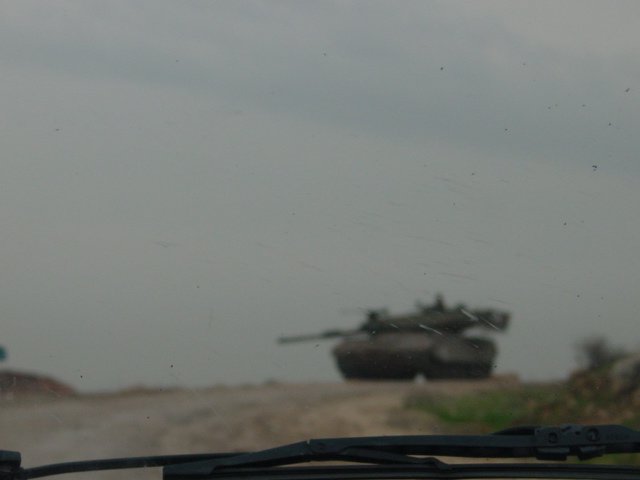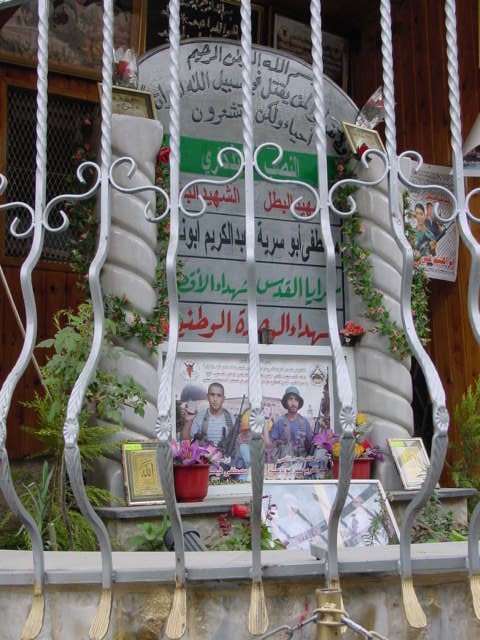Turning to Face
As we have watched the events of the past week unfold, a jumble of thoughts and emotions has been growing within us, clamoring for expression, for release. But the work of expression is hard. Fragments of ideas, scraps of notions, washes of feelings, must all be shaped and formed, ordered and molded into something recognizable. It is an agonizing birthing, a long labor. And when it is over, once the writing has been written, there is the fear that the words are sterile, stillborn. Are the words true? Will they be heard? Is it too late?
In spite of these difficulties and fears, speak we must - there is an ache within us, a yearning to say something, perhaps just to groan in sorrow, to appeal and plead with the world to listen, even if the words are insufficient and the ideas are half-formed. It's a burning that needs to be relieved, that cries out for a voice. We beg your indulgence - forgive our ramblings, our poorly-worded sentences, but we need to speak. Woe to us if we don't. And so we offer our thoughts, for whatever they're worth, from where we are.
How do we as a people respond to the horror of last Tuesday? Our first response, of course, was one of care and comfort - rallying together to rescue and support those most affected by the attacks. As a nation, we searched for them, we waited with them, we wept for and with them. And we will continue to do so for a long time to come.
Now, the shock is fading and the painful reality of cruel loss is sinking in. We proceed as a nation to our next response. What will it be? There is much talk of war, there is some talk of peace. There is much talk of retaliation; there is talk of deliberation; there is talk of action; there is talk of talk. What should be done?
An Israeli military helicopter flies over Zababdeh.
We do not have the audacity to claim we know the answer. However, we do have the temerity to believe we have something to say. Most immediately, we can turn to the canon of experience. Given great weight in everyday conversation, personal experiences are nevertheless purely subjective and can therefore never be authoritative. They can, however be informative. Our experiences of last Tuesday's attack and aftermath began, as it did for people around the world, with watching New York and Washington burn and crumble on live television. But even during the initial shock of this unthinkable attack, we were jolted back to our present reality. The sounds of tank shells in the distance and Apache attack helicopters overhead, and fears for students, teachers, and friends in Jenin and Tubas - these brought us back to the reality in Palestine and Israel, a cycle of violence that has spun out of control for far too long.
If there is anything to be gained from the insanity of this place, if there is to be any redemption out of this tragic farce, let it at least be in a lesson to the world. Now, in particular, let it be a lesson to our nation as we respond to Tuesday's terror. Many parallels have been drawn between the two situations, but we would caution against equating them too closely. In spite of some similarities (bloody and unpredictable terrorist attacks on innocent civilians) and in spite of what some in America and Israel claim, Israel is not the same as the US, and Palestine and Arafat are not the same as Afghanistan and Bin Laden (or whomever is found guilty of the crime). And in spite of some similarities (intentional, devastating attacks on centers of government and national pride, scores of deaths of innocent civilians) and in spite of what some in Palestine claim, the reverse is not true either. What does seem patently true to us is that violent responses to terror have no positive effect. It is not redemptive, it will not deliver us from the whirl of bloodletting. Here we see a suicide bomber murder civilians and provoke draconian measures on an entire population; the draconian measures - which have their own death tolls - provoke desperate, self-destructive violence against civilians.
An Israeli tank meets us on the road between Zababdeh and Jenin.
There is no way out. Suicide bombings obviously deny one's humanity as well as that of one's victims, but suffocating collective punishment is no less dehumanizing, for it sees the other as nothing but an enemy - to be feared and removed. If there is any word of hope, any crumb from here that can feed a world hungry for answers, it is this: do not fall prey to the gods of war. They are insatiable, they reap inhumanity upon inhumanity. It is a cycle that does not end, spurred on by a siren-like battle cry ringing in our ears.
As we try to make sense of things, we also seek guidance from the canon of our faith. Not all of you share our Christian confession, and not all of you who share our confession share our views. But this faith is not simply a philosophical choice. It is integral to who we are - and whose we are.
What is the Christian response to evil? Repentance - a turning to God, an examination of the self, of one's society, of one's participation in that society. We are reminded of a story from the gospel of Luke, where Jesus discusses two local tragedies: the murder of worshipers by Pontius Pilate, mingling their blood with that of their sacrifices; and the death of eighteen under the weight of a collapsing tower. Jesus' response is clear: "Do you think these suffered in this way because they were worse sinners? No, I tell you; but unless you repent, you will all perish as they did." (Luke 13:2-3)
A shrine in Jenin to Palestinian “martyrs”.
Don’t confuse Jesus' answer with Brother Jerry Falwell's explanation that what we witnessed Tuesday was God's punishment to a faithless nation. On the contrary, Jesus is pointing us towards a response to evil, not towards the cause of it. However, he does warn that lives lived without repentance - without the humility and honesty of acknowledging wrongdoing - are destined for tragedy. As Latin Patriarch Michel Sabbah said almost one year ago, referencing this passage, "penitence will save from bloodshed." His words ring prophetic about this place, but the application is every bit as real for our homeland. No matter what happens, we must repent.
Repentance is, after all, a turning to face God. It is a shining of light on that which is shrouded in darkness. It is painful, but it is restorative. Before we do anything else, we must confront the brokenness within us and within our society. It requires turning to face the perfect love, mercy, and forgiveness of God. And with all of our failings, every way in which we have participated in evil ourselves, we must seek forgiveness.
This work of repentance is not confined to the individual - it is also a collective responsibility, for we live in relationship with others. As we search our souls for the brokenness and hurt within, we also must search our churches, our societies, and our governments. How are we complicit - how do we participate in systems which allow evil to flourish?
There has been a lot of talk about how America's foreign policy, particularly regarding Israel/Palestine and Iraq, may have motivated the attacks on Tuesday. Speaking from the canon of experience, we would say, yes, American policies here - as in many parts of the world, throughout our history - breed anti-Americanism. And yes, this anti-Americanism can breed terrorism. A logical conclusion would be to take a good, hard look at the grievances that people around the world have against our country. Speaking from the canon of faith, we would say that this good, hard look should measure deeds against the yardstick of justice and mercy.
As we embark on the hard, painful work of repentance, we also know that our God is one of grace, and true repentance is always met with ready forgiveness. It is that forgiveness that holds us in a state of grace. We forgive others not because they want to be forgiven, but because we ourselves have been forgiven. We love our enemies not because they seek our love, but because we - the enemies of the reign of God - are loved.
Seek repentance, friends. It seeks us.
Elizabeth and Marthame



